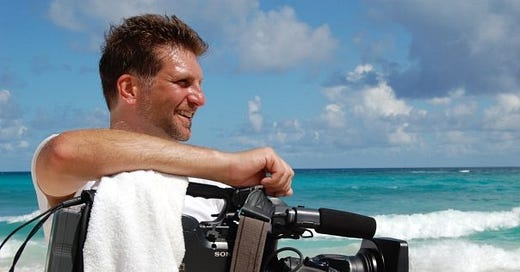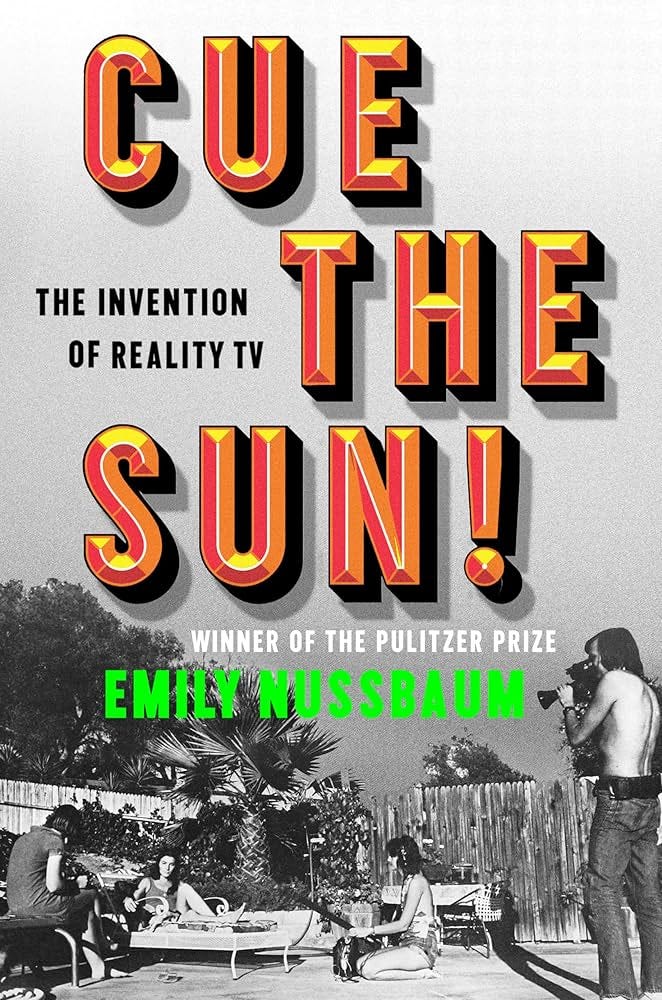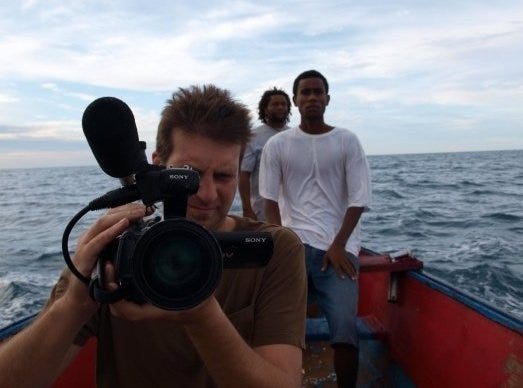I Just Realized I Made Reality TV
A new book brought back memories of my own "unscripted" shows
After reading Emily Nussbaum’s brilliant new book, Cue the Sun! — a definitive history of reality television — I remembered just how much of the stuff I had made back in the day.
Although the friendly Canadian do-gooder reality programming I directed and produced doesn’t compare to the sordid tales of Nussbaum’s jaw-dropping research — there was still enough common ground in the book to make me laugh, wince, regret, and marvel at that era.
In Cue the Sun!, Nussbaum — a Pulitzer Prize-winner and former television critic for The New Yorker — lays out in 400 pages how “reality” programming started out in early radio days with callers spilling their guts, and evolved into an actual television gene, in particular with The Real World, and when Survivor classed things up with arial shots, beauty footage, and high-end production.
What is the common denominator of the hundreds upon hundreds of shows made in between (and after)? They are always a zillion times cheaper to produce than scripted dramas, all with their fancy-dancy unions, actors, writers, sets, and expensive budgets.
We, in the industry called what we were making “Unscripted Television” to sand off the stigma of the words “Reality TV.” But, c’mon guys. The shows were manipulated enough. Did we have to put lipstick on the name of what we were really making?
The erudite yet highly-entertaining way the author takes us right into the cultural shift of television over time is detailed and delicious. Even if you weren’t part of the inside-baseball-biz, the stories of how influential, exploitive, groundbreaking, backbreaking, and downright dangerous these shows were, make it a page-turner for anyone who has ever flipped a channel.
The book dives deep into early TV shows like Candid Camera, and the groovy Chuck Barris productions of The Dating Game, The Newlywed Game, and The Gong Show (Barris, being the first official douchebag of reality television — worth the read alone).
From there, the seemingly endless shows Nussbaum probes, increasingly get as outrageous as the stories behind them: America’s Funniest Home Videos, Cops, Alien Autopsy, Big Brother, Fear Factor, Joe Millionaire, American Idol, and a dumpster of reprehensible television you’ve never heard of because they lasted only a few episodes. There were shows where real life people became celebrities (The Bachelor, Survivor…you name it), and shows where celebrities tried to become real people (Jessica Simpson, Ozzy Osbourne). Anything was up for grabs for an easy buck.
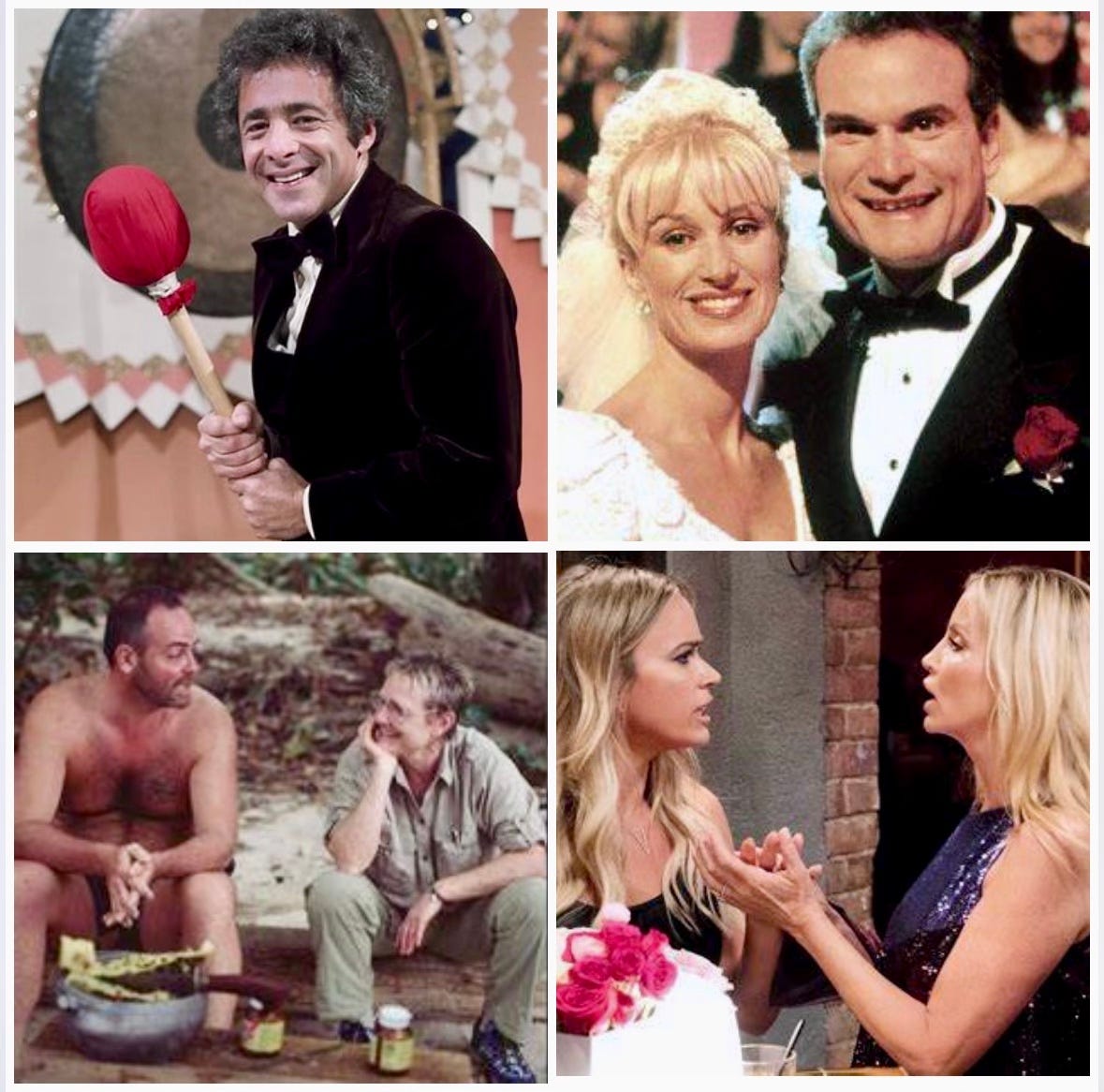
Early tales of The Bachelor are especially shocking, with producers interviewing female contestants only when good and drunk, using their mental health against them for footage of tears to later be used out-of-context, and editors employing “frankenbites” — the cutting and pasting of fake sentences using single words stitched together from hundreds of hours of footage.
Then there were the two hosts of Queer Eye for the Straight Guy who hadn’t come out to their families before the show premiered. Or the millionaire of Who Wants to Marry a Multi-Millionaire being outed as a man of so-so means with a history of domestic violence. And there’s the heavy guilt some production staff of The Apprentice still carry, for helping portray a washed-up, crass, huckster — a joke in New York at the time — as a put-together and charming business tycoon, who would soon use this shtick to become President.
There were props planted to vilify contestants, deceiving contracts, no after-counselling, producer manipulation, payola, lies, and endless lawsuits. Even the crews, who shot and edited these money-machines couldn’t unionize, and were subjected to punishing hours and conditions.
I never watched-watched reality television. Of course, I’d seen many of the biggies, but the only two I can remember being hooked on were Iron Chef, and weirdly, Project Runway (later to be discovered as a hunting ground for Harvey Weinstein). I didn’t watch reality TV because I thought I was above the genre, I just consumed other things.
When it came to making reality television, I have nothing but love for my crews, editors, officemates, subjects, and final products. I was making Canadian reality shows, after all, that mostly set out to better people’s lives. Nothing close to what’s inside Cue the Sun! I was blessed with traveling the world, working with famous chefs, learning visual storytelling, and creating narratives on the fly with talented, tireless people.
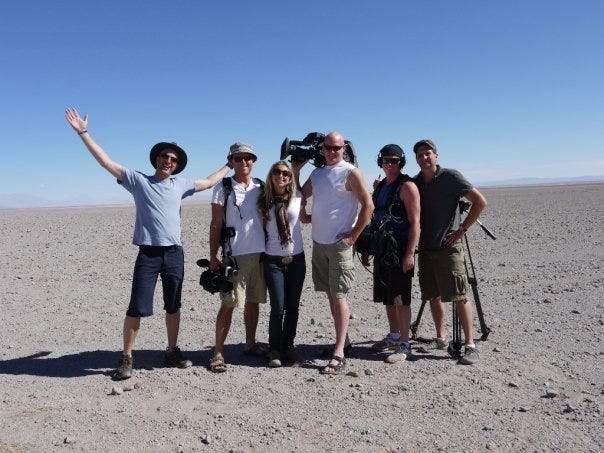
However, the book did give me a few ticks and itches, as I recognized I too was under the umbrella of the “unscripted” format’s foibles, even mildly.
I admit, I’ve been directed to do my best to make an interviewee cry on camera. I’ve asked editors to put in dramatic music where no drama existed, or worse, to create jigsawed storylines out of nothing. I’ve subtly pitted contestants against each other with secret whispers, and I’ve helped in decorating many makeover homes with showy accessories we’d take back immediately after getting the “reveal shot.”
The conditions of the genre could kind of suck back then, compared to a 9 to 5 job — we would sometimes work 12-14 hour days, receive emails and calls in the middle of the night, and I’ll never forget this exchange with a superior when I got a call from my very upset wife, who had just been in a car crunch with our daughter in the back baby seat:
Me: I gotta go now! They’re waiting at the Starbucks across town.
Superior: Well… just how bad is the accident? We really do need you here.
In lieu of overtime for lump sum contracts, many production offices would stock the fridges wth treats, wine, and beer to keep someone like me editing into night. The production office often functioned as a second home, not a separate workplace. What I soon found out, is that this luxury was both catnip and kryptonite for someone with a progressive allergy to alcohol.
(Full disclosure, there were some wonderful productions that my progressive alcoholism sabotaged, and with time, I became both unreliable and unsuited to this kind of work. *To those I let down — you know who you are — I am deeply sorry, in my journey of recovery).
But man, making this kind of content could be thrilling, unpredictable, funny, and emotional. And when unscripted moments big-banged into captivating stories, it was a creative rush like no other.
My biggest takeaway from my reality TV days is definitely off-camera.
During one very high-budget and ambitious series I was creative producing, I met one of hundreds of “contestants” our crews documented daily. At the time, we were both married people, both with a tiny kid in our young families. But a whole decade later, when both of our lives had pivoted another direction, thanks to a hello on Facebook, she asked me out. We’ve been together for over 12 years now.
We never would have met otherwise. And to this day, I can’t say we’ve ever watched reality television together.

